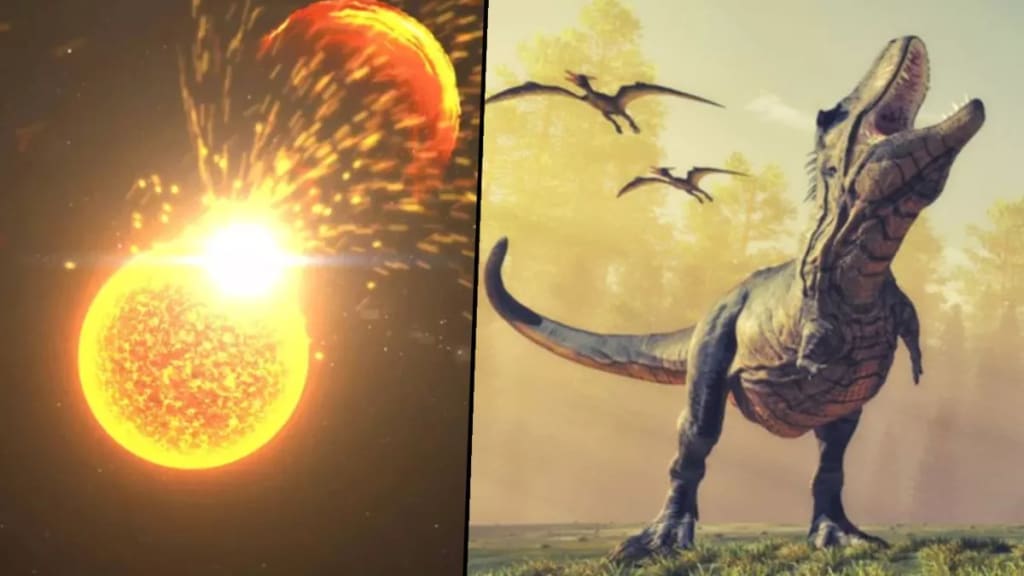
Introduction:
In the realm of science, each week brings new discoveries and advancements that expand our understanding of the world around us. This week's news highlights two fascinating topics that have captivated scientists and the public alike. First, we delve into the realm of astrobiology as researchers uncover tantalizing evidence of the spark of life in space. Then, we journey back in time to explore a mind-boggling estimate that suggests there were 1.7 billion T. rexes that roamed the Earth. These remarkable findings showcase the wonders of our universe and the boundless nature of scientific inquiry.
The Spark of Life in Space:
The question of whether life exists beyond Earth has long intrigued humanity. This week, a team of scientists made an intriguing discovery that bolsters the possibility of life beyond our planet. They found organic molecules and phosphorus, essential building blocks of life, in ancient meteorites that fell to Earth. This discovery adds weight to the theory that the ingredients necessary for life may be scattered throughout the cosmos.
The researchers analyzed the chemical composition of meteorites that have been preserved for millions of years. They detected amino acids, nucleobases, and other organic compounds, providing strong evidence that the precursors to life are not exclusive to Earth. Moreover, the presence of phosphorus, a crucial element in DNA and cell membranes, further supports the notion that the necessary ingredients for life are widespread.
While these findings do not confirm the existence of extraterrestrial life, they offer an intriguing glimpse into the possibility. Scientists now have a greater understanding of how life's building blocks may have formed and how they might be distributed throughout the universe. This discovery serves as a stepping stone for future research and bolsters the search for life beyond our planet.
1.7 Billion T. rexes:
Tyrannosaurus rex, the "king of the dinosaurs," continues to captivate our imagination. This week, paleontologists announced a mind-boggling estimate that suggests a staggering 1.7 billion T. rexes once roamed the Earth over the species' existence. This revelation, based on a novel statistical analysis, has ignited a flurry of excitement and discussion among scientists and dinosaur enthusiasts.
To arrive at this astonishing estimate, scientists combined data from fossil records, ecological models, and cutting-edge statistical techniques. The analysis factored in variables such as population dynamics, geographical distribution, and the duration of the T. rex species. The researchers extrapolated their findings to estimate the total number of T. rex individuals that existed throughout their existence.
While the sheer magnitude of 1.7 billion T. rexes may seem staggering, it highlights the incredible success and adaptability of this iconic species. The estimation suggests that T. rexes existed in relatively low densities across the vast expanse of North America during the Late Cretaceous period. This finding challenges previous assumptions about the population density of large carnivorous dinosaurs.
Moreover, this study provides valuable insights into the ecological dynamics of the Late Cretaceous period. It suggests that T. rexes may have exerted significant top-down pressure on herbivorous dinosaur populations, leading to complex ecological interactions and shaping the ecosystems of that era.
These remarkable findings showcase the wonders of our universe and the boundless nature of scientific inquiry.
Conclusion:
This week's science news offers two compelling stories that expand our understanding of the universe and the history of life on Earth. The discovery of organic molecules and phosphorus in meteorites provides tantalizing evidence of the possibility of life beyond our planet. While the existence of extraterrestrial life remains elusive, this finding underscores the potential prevalence of life's building blocks throughout the cosmos.
In the realm of dinosaurs, the estimation of 1.7 billion T. rexes roaming the Earth serves as a striking reminder of the





Comments
There are no comments for this story
Be the first to respond and start the conversation.